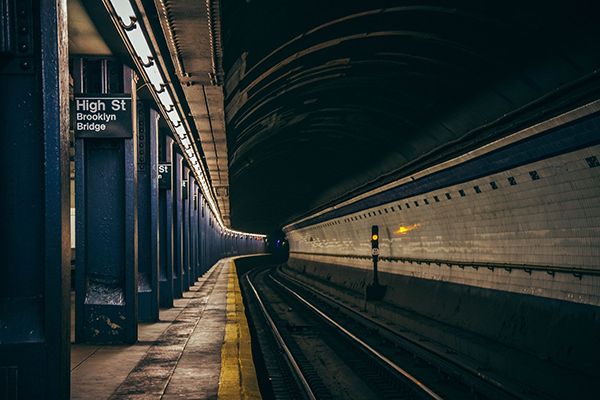
WINDSOR TERRACE — During Lent, Christians around the world pause to take a breath. It’s a time for reflection, prayer, almsgiving and fasting to honor and remember Christ’s sacrifices.
While Catholics in Brooklyn and Queens carve out time to “breathe” spiritually during this liturgical season, they can also be aware of going green during Lent, environmental advocates say.
New Yorkers can bring their own bags to stores, carpool and go plant-based to lessen their carbon footprint and waste output. Those are contributions to a “seedbed for collective selfishness” that Pope Francis cited in “Laudato Si’,” his 2016 encyclical on the environment.
Father Brian Jordan, O.F.M., who ministers in the Brooklyn Diocese, sees an eco-friendly approach during the next month as a “new meaning on the three hallmarks of Lent,” starting with the biblically inspired breath of prayer itself.
In the Old Testament, the word “ruach” represented the breath of life. In the New Testament, Father Jordan explained, it has a similar meaning: “pneuma,” or to breathe and blow, like the Holy Spirit, which brings life to the faith.
“We need air to breathe physically and air to breathe spiritually,” and that includes improving the very environment in which we breathe and live, he said.
“Do you really have to drive by yourself?” he asked. He encourages using public transportation and urges those who drive to “share the responsibility” by carpooling. Drivers account for 60 percent of New York City’s transportation-related CO2 emissions, and driving alone causes more than 4,000 pounds per year of emissions — five times the amount created by taking the subway, according to advocacy group Transportation Alternatives.
Coincidentally, this Lent, New York City’s ban on single-use plastic bags went into effect. Plastic is another large contributor to the Earth’s carbon footprint.
“Throughout New York state, plastic bags have become a ubiquitous sight on the landscape,” said Kevin O. Frazier, a spokesman for the state’s Department of Environmental Conservation. “From the significant recycling and disposal issues they pose as litter and the harm they create to wildlife, their negative impacts can be seen daily.”
In New York state, 23 billion plastic bags are used each year, Frazier said. Now, consumers who don’t bring their own reusable bag will be charged 5 cents for each carryout bag they request at checkout.
For Father Jordan, the irony of the bag ban coming into effect during Lent of change is not lost. “Birds try to eat them and they choke to death,” he said. “Give a new purpose for that new bag.”
Sticking to fish, vegetables and carbs on Fridays during Lent is another way to go green, some say.
“Cattle, pigs and lambs contribute far more to greenhouse gas pollution than soybeans,” said Dan Misleh, the founder of Catholic Climate Covenant, an organization that strives to help U.S. Catholics respond to the church’s call to care for creation and for the poor.
“Even plant-based foods have a carbon footprint, but a primarily plant-based diet can dramatically lower the carbon footprint of our food choices,” he said.
While clergy across the country debate whether it’s proper to eat plant-based meat substitutes as opposed to more traditional fish and vegetables, Father Jordan said that as long as we observe the practice and “as long as it’s not ‘true meat’” it’s not a topic we can speak on for others. “There’s nothing wrong with fish,” he added. “I still eat fish on Friday.”
Catholics can also give alms by supporting environmental groups, Father Jordan said. “Why not give contributions to their wonderful groups” in the name of creation, he asked.
Using Pope Francis’s encyclical as a guideline “leads to a close examination of our lifestyles,” Misleh said. “Once we have our hearts and minds oriented towards God’s goodness found in all of creation and especially in humankind, we will feel compelled to walk more gently on this good earth.”
“It will lead us to want to look at all areas of our life, including a look at these practices in our workplaces and our parishes,” he added. “This examination will also lead us to advocacy, which is not only about public policy but educating and encouraging our families, friends and even our pastors.”
